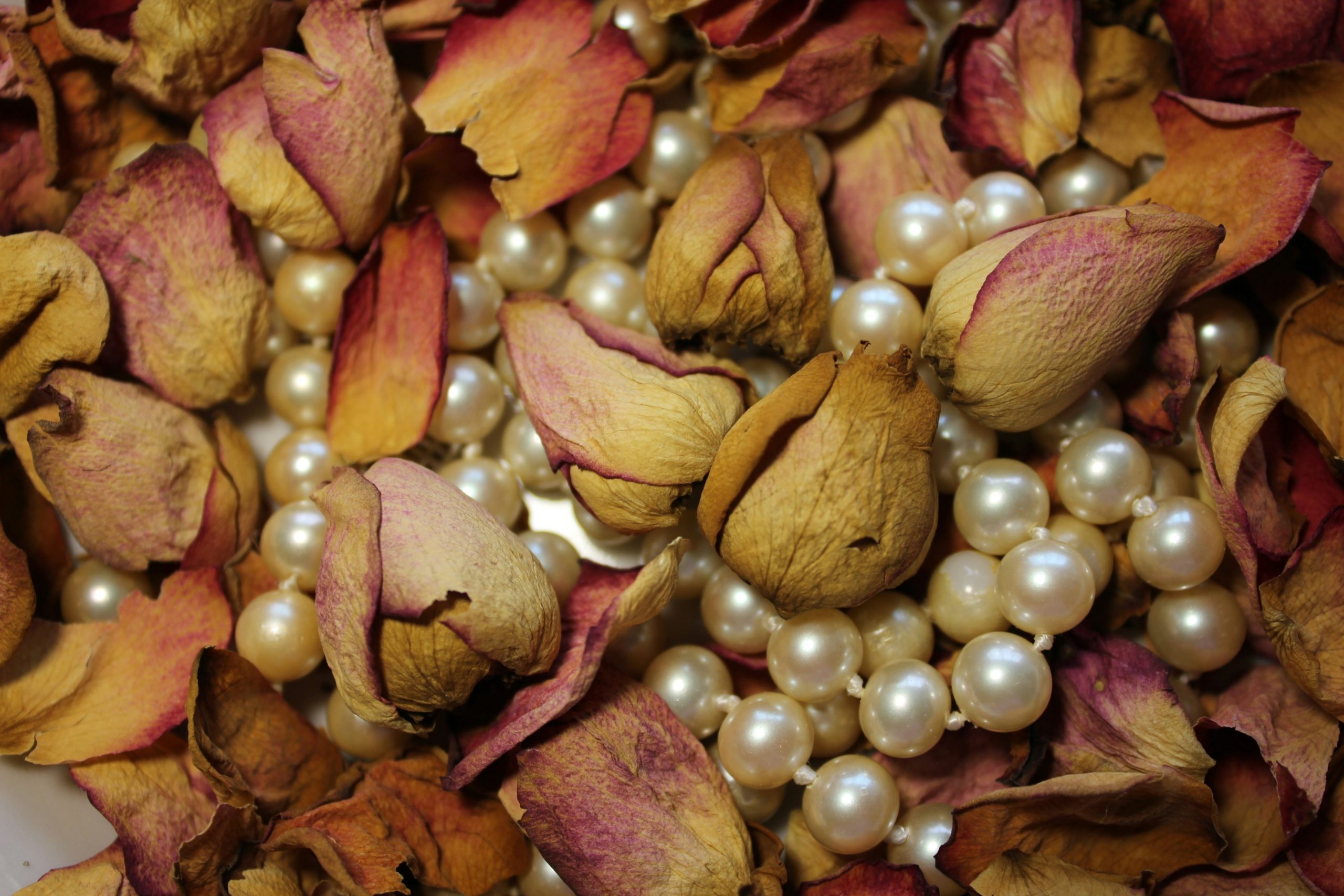Welcome to The Grand Finale of “Righteous Romances”! Exploring love stories from the Sahaba (R.A).
Thank you for joining us on this journey, we hope you found it beneficial! In case you missed part 3, you can read it here
The Battle of Badr had just ended, and the Muslims were gathering the spoils of their victory.
One by one, the prisoners from the Quraysh were brought forth to the Prophet ﷺ to be ransomed for their freedom, and among them was a man who presented Allah’s Messenger with something that evoked memories of joy and pain.
It was a necklace, one that belonged to his dear wife Khadijah (R.A).
How did it end up here at the planes of Badr, and who was this man who presented it to the Messenger?
To really complete this scene, we must go back to a time many years before the prophetic mission in Makkah.
A Noble Wedding Gift
The Prophet ﷺ had married his daughter Ruqayyah to her cousin ‘Utbah bin Abi Lahab, his daughter Umm Kulthum to her cousin ‘Utaybah bin Abi Lahab, and his daughter Zaynab to a man named Abul-’Aas bin al-Rabi’ from the tribe of Banu Abd Manaf of Banu Abd Shams.
When the Prophet ﷺ was given revelation and began preaching in the city, the Quraysh sought to humiliate his family by separating his daughters from their husbands.
Ruqayyah’s marriage to ‘Utbah had not yet been consummated, so he divorced her after Quraysh had requested his father to order him to do so, and sent her back to her father. ‘Utaybah did the same with Umm Kulthum.
As for Abul-’Aas, they said, “Divorce the daughter of Muhammad, and we will marry you to any woman from Quraysh you wish.” Although he was a polytheist at the time, he refused, saying, “Even if you married me to all the daughters of Quraysh, I would not divorce her.”
The Prophet ﷺ migrated to Madinah, and the years passed by.
After the Battle of Badr, the prisoners were brought before him, and begrudgingly, Abul-’Aas was amongst them.
The ransom for the prisoners was arranged, and each prisoner had their relatives from Mecca send money or valuables on their behalf.
When the ransom for Abul-’Aas came, it had been sent by Zaynab (R.A) with her brother-in-law, Abdullah bin al-Rabi’. It included money and the necklace that her mother Khadijah had given her as a gift to wear on the day she married Abul-’Aas.
When the ransom of Abul-’Aas was presented, and the necklace was shown to him, the memory of Khadijah (may Allah be pleased with her) was present with it.
As the Prophet ﷺ looked at the necklace in front of him, he saw the scene of Khadijah adorning her daughter on her wedding day.
It was as if this necklace spoke on behalf of Khadijah; and Zaynab, who sent that necklace on her husband’s behalf, understood this. It sent a clear message of the extent of her love and compassion for her husband.
The Prophet ﷺ was deeply moved, but he had to remain just, and so before making a decision, he turned to his companions, saying, “If you see fit to return her necklace, then do so…”
They said, “Yes, we will do it, O Messenger of Allah…” The necklace was returned to Abul-’Aas bin al-Rabi’, and they agreed to settle for the money alone as his ransom.
However, the Prophet ﷺ stipulated that in return, he must send Zaynab back to him.
The Test of Distance
Abul-’Aas returned to Makkah, and prepared his beloved wife to send her back to her father, fulfilling the promise he had made to him.
As Zaynab prepared to leave, she was visited by the most prominent grieving woman in Mecca after Badr, Hind bint ‘Utbah.
Hind had lost her father, ‘Utbah bin al-Rabi’ah, her brother, Shaybah ibn ‘Utbah, and her son, Handhalah bin Abu Sufyan, who had all been killed in the Battle of Badr.
She said, “O daughter of Muhammad, what happens between men does not need to come between us women. I know you are going to your father, so if you have any need, ask me; ask whatever you wish, and do not ask anyone else!”
Zaynab recounted this, saying, “I believe that if I had asked her for anything, she would have given it to me,” meaning that she believed she was sincere.
Zaynab joined her father and stayed with him in Medina for six years.
Despite him having yet to embrace Islam, Zaynab was still deeply in love with Abul-’Aas, and remained a committed wife despite their distance, knowing that he was an honorable and sincere man, and hoping that he would embrace the truth.
A Joyous Reunion
Zaynab’s trust proved to be true as, eventually, Abul-’Aas embraced Islam and migrated to Madinah five months before the Treaty of Hudaybiyyah.
The Prophet ﷺ returned Zaynab to him, and he continued to mention the loyalty of Abul-Aas, both the first and the second times he remained loyal to Zaynab.
The first instance was when Quraysh urged him to divorce Zaynab and he refused, considering her equal to all the women of Quraysh put together. The second was when he gave and fulfilled his promise to send Zaynab back to him after Badr.
The Prophet ﷺ would praise Abul-’Aas amongst the other companions, mentioning him as his son in-law from Banu ‘Abd Shams, saying: “Whenever he spoke to me, he spoke the truth, and whenever he promised me, he fulfilled his promise.” [Sahih al Bukhari]
What great loyalty to the memory of Khadijah.
Just seeing the necklace brought back such a strong and emotional memory that it was as if she were present, interceding before him.
And how beautiful and honorable was the journey of Abul-’Aas and Zaynab? One that allowed for Abul-’Aas to accept Islam in his own timing, whilst preserving the dignity of Zaynab (R.A) and protecting her.
May Allah be pleased with them, reunite them in the hereafter, and allow us to join them and the Prophet ﷺ .



Recent Comments